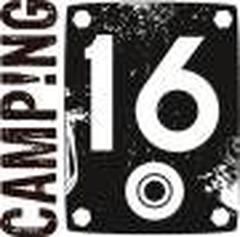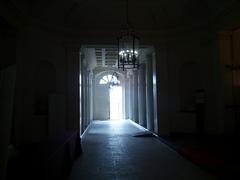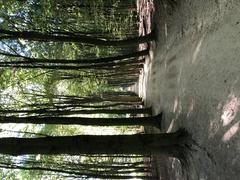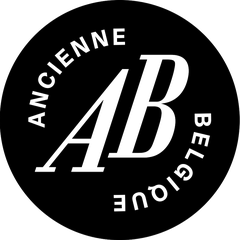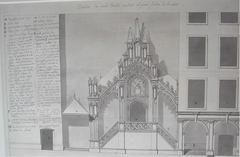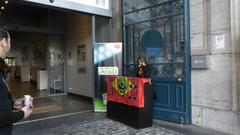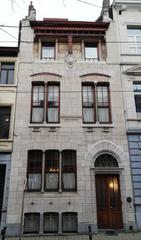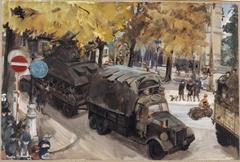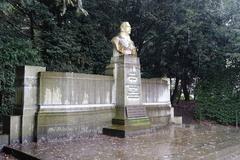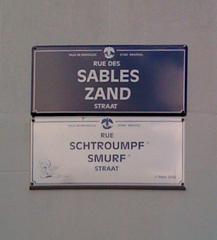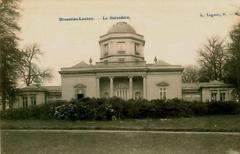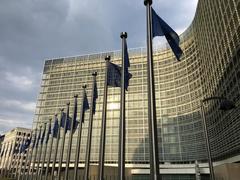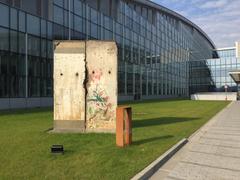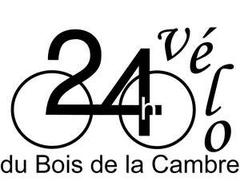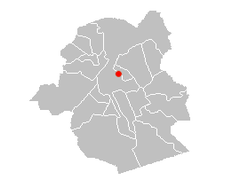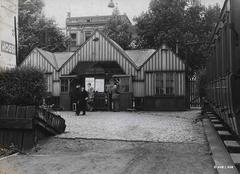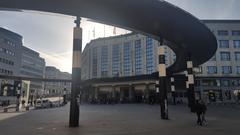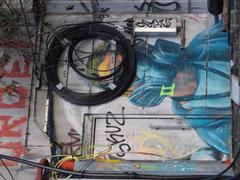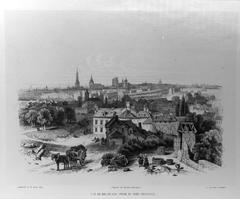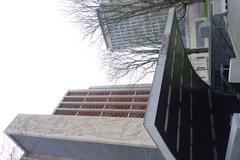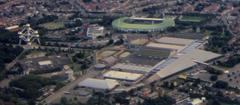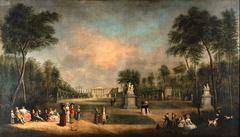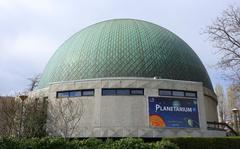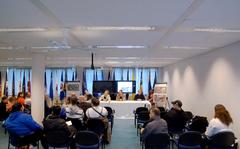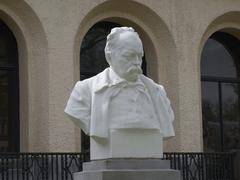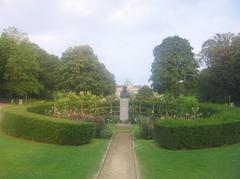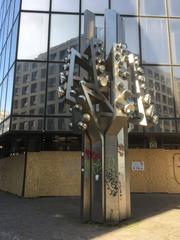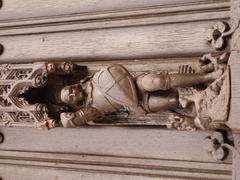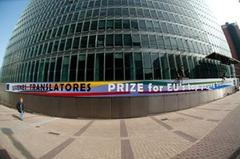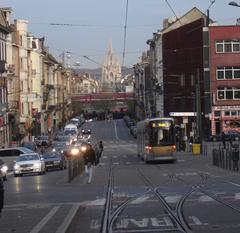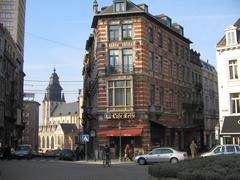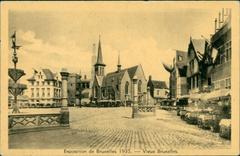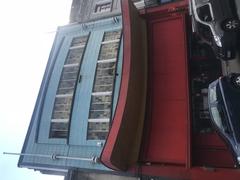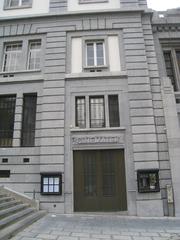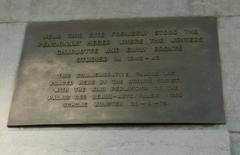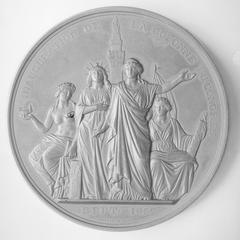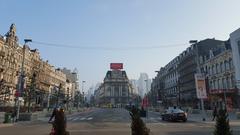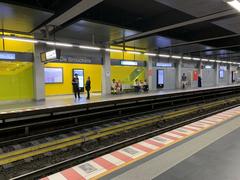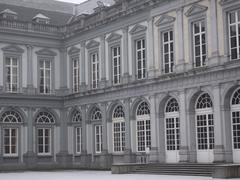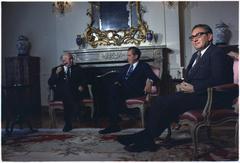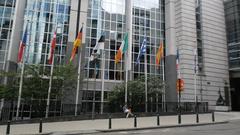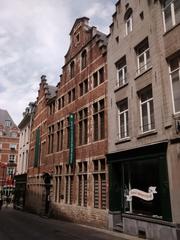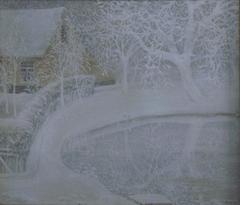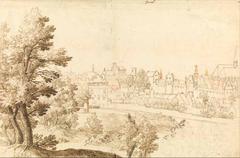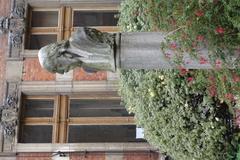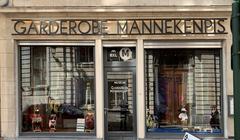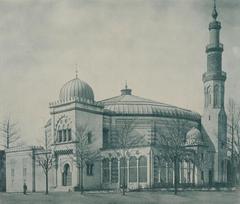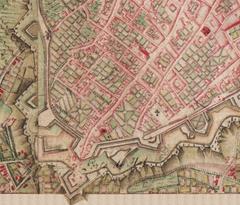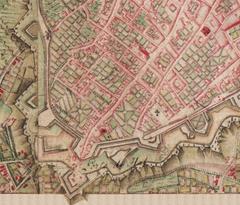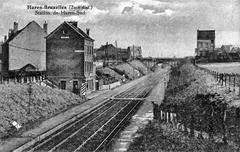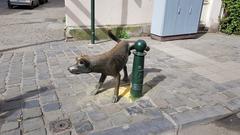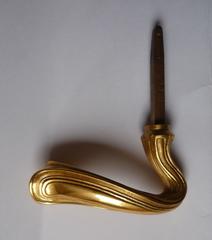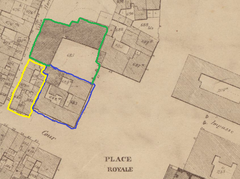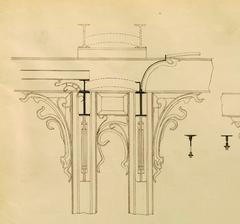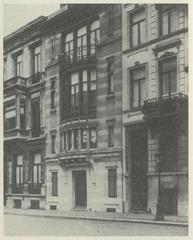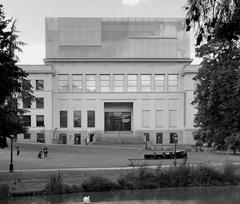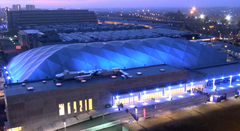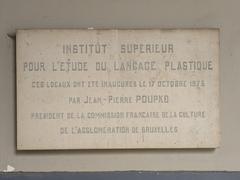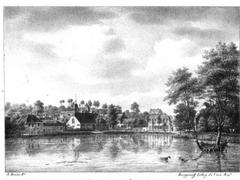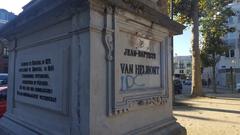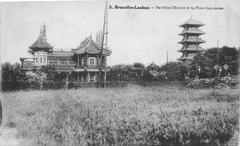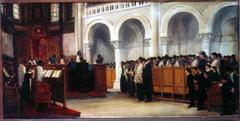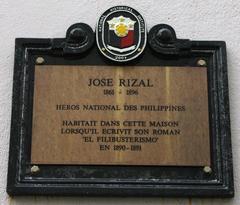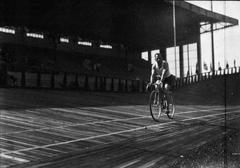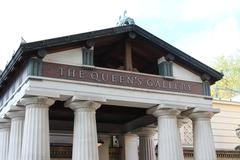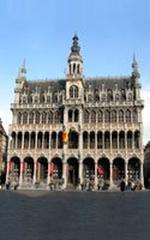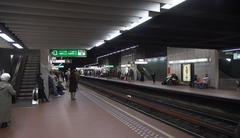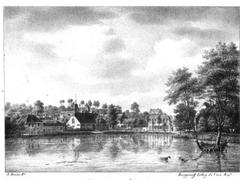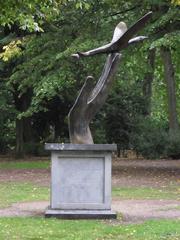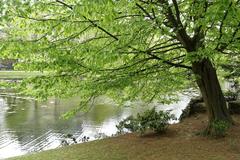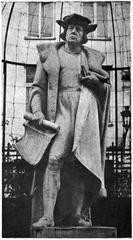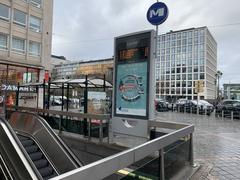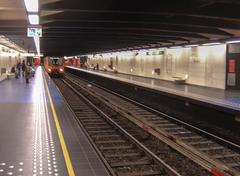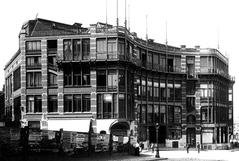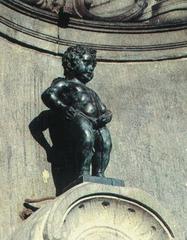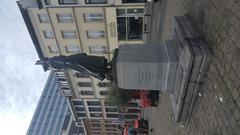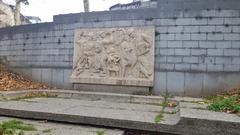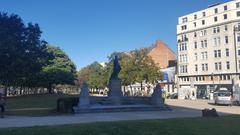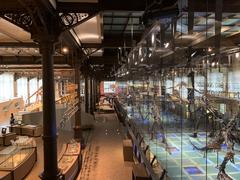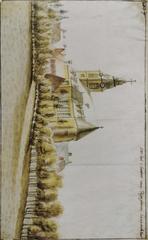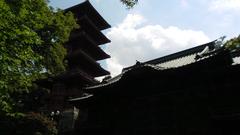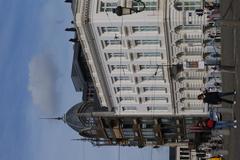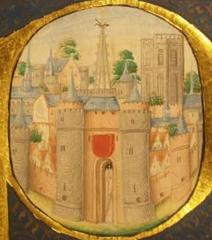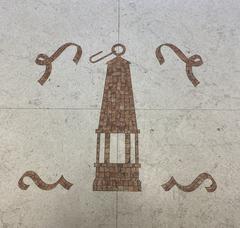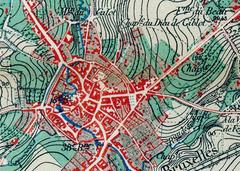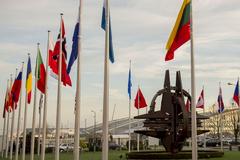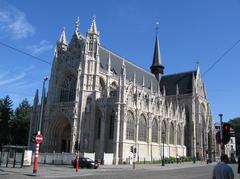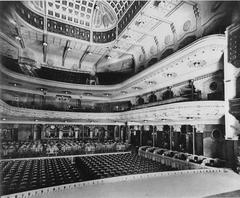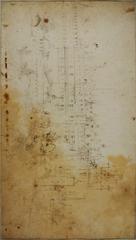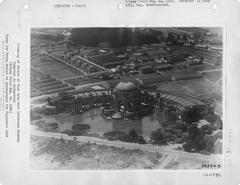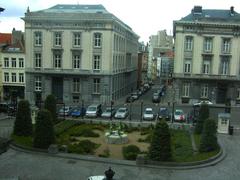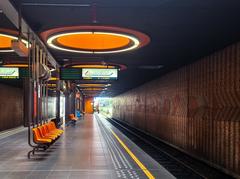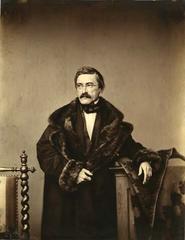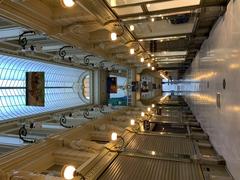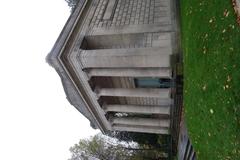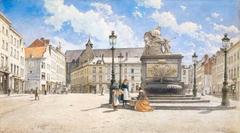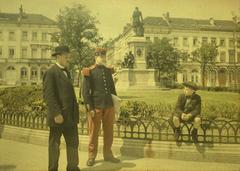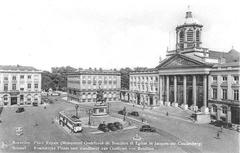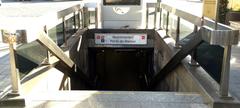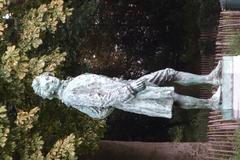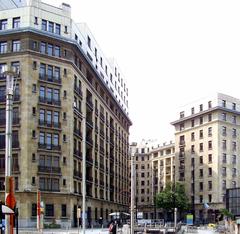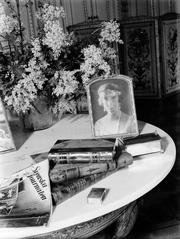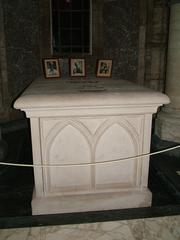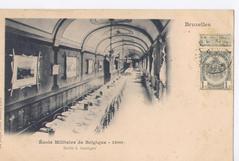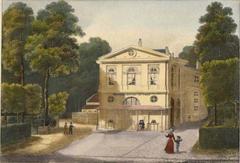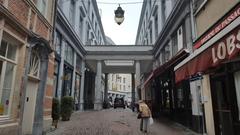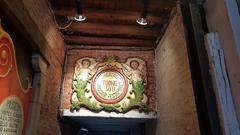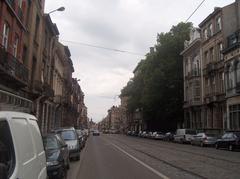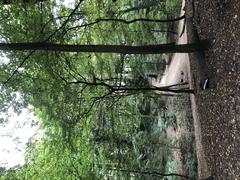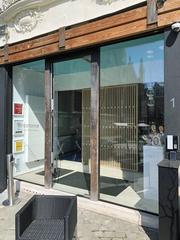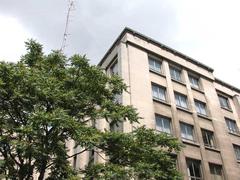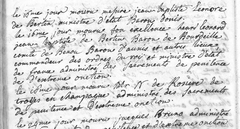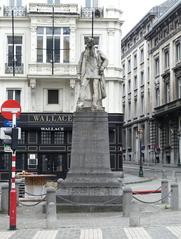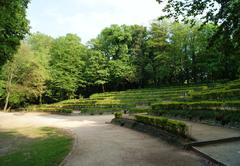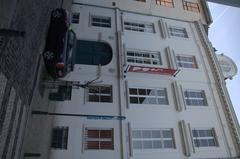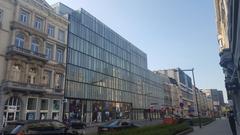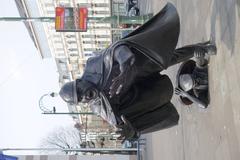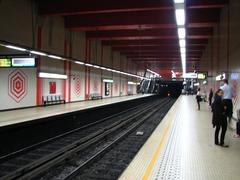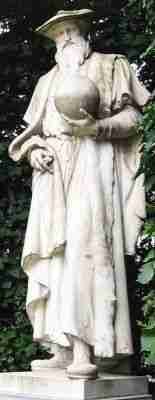
Gerardus Mercator Monument: Visiting Hours, Tickets, and Historical Sites in Brussels
Date: 14/06/2025
Introduction
Gerardus Mercator, the visionary Flemish cartographer, continues to shape how we see and navigate the world. His pioneering Mercator projection transformed maritime navigation, and his “atlas” collections set the standard for mapmaking. For visitors to Brussels and Belgium, tracing Mercator’s legacy offers a deep dive into Renaissance science, Belgian heritage, and the enduring art of cartography. This guide details the key sites, practical visiting information, and cultural context for exploring Mercator-related attractions in Brussels and beyond.
Table of Contents
- Introduction
- Who Was Gerardus Mercator?
- Key Mercator Monuments and Museums in Belgium
- Visiting Mercator-Related Sites in Brussels
- Practical Travel Tips
- Frequently Asked Questions (FAQ)
- Additional Attractions Nearby
- References and Further Reading
- Conclusion
Who Was Gerardus Mercator?
Born in 1512 in Rupelmonde, Flanders, Gerardus Mercator (originally Gerard de Kremer) was a trailblazing cartographer and mathematician. His 1569 world map introduced the Mercator projection, a cylindrical map that preserved navigational angles, revolutionizing sea travel in the Age of Exploration (Britannica). He also coined the term “atlas” for a collection of maps, making geography accessible to scholars and the public alike (Focus on Belgium). Mercator’s education at the University of Leuven and his connections to the Habsburg court solidified his influence in Belgian and European intellectual circles.
Key Mercator Monuments and Museums in Belgium
Mercator Statue in Rupelmonde
- Location: Grote Markt, Rupelmonde
- Access: Outdoor monument, accessible year-round
- Highlights: Celebrates Mercator’s birthplace with commemorative plaques and historical context.
Mercator Museum in Rupelmonde
- Location: Kerkstraat 9, Rupelmonde
- Hours: Tuesday–Sunday, 10:00 AM–5:00 PM; closed Mondays
- Tickets: Adults €5; free for children under 12
- Accessibility: Wheelchair accessible
- Features: Original globes, maps, interactive displays, and guided tours (weekends; booking recommended)
(Mercator Museum)
Mercator Museum in Sint-Niklaas
- Location: Sint-Niklaas (short train trip from Brussels)
- Hours: Tuesday–Sunday, 10:00 AM–5:00 PM; closed Mondays
- Tickets: Approx. €7–€8; discounts available
- Accessibility: Limited; contact for arrangements
- Features: Extensive collection of Mercator’s maps, globes, and instruments, with English-language guided tours
(Mercator Museum, Sint-Niklaas)
Royal Library of Belgium (KBR)
- Location: Boulevard de l’Empereur 4, 1000 Brussels
- Hours: Monday–Friday, 9:00 AM–6:00 PM; Saturday, 10:00 AM–5:00 PM; closed Sundays
- Tickets: Free entry; special exhibitions may require tickets (€5–€10)
- Features: Periodic displays of original Mercator maps and globes, plus access to Belgium’s premier collection of early cartography
(KBR Museum)
Royal Museums of Fine Arts of Belgium
- Location: Rue de la Régence 3, 1000 Brussels
- Hours: 10:00 AM–5:00 PM, Tuesday–Sunday
- Tickets: Around €15 for adults
- Accessibility: Wheelchair accessible
- Features: Exhibitions on scientific and artistic heritage, often including Mercator’s era
(Royal Museums of Fine Arts)
Brussels City Museum (Maison du Roi/Broodhuis)
- Location: Grand Place, Brussels
- Hours: 10:00 AM–5:00 PM; closed Mondays
- Tickets: Approx. €8; free for EU residents under 26
- Features: Exhibits on Brussels’ scientific and Renaissance history, occasional focus on Mercator
(Brussels City Museum)
Visiting Mercator-Related Sites in Brussels
Public Art & Memorials
While Brussels does not have a dedicated Mercator statue, visitors will find plaques and historical markers referencing Mercator’s contributions, especially near the Grand Place and Coudenberg Palace. These sites reflect the city’s Renaissance and Habsburg heritage, providing context to Mercator’s world.
Renaissance and Cartography Walking Tours
- Themed Tours: Join Renaissance or science-focused walking and biking tours that include key sites tied to Mercator’s patrons and the city’s intellectual life.
- Duration: Approximately 2 hours
- Booking: Available via local tourist offices and online platforms; advance reservation recommended
- Highlights: Grand Place, Mont des Arts, scholarly guild halls, royal residences
(Her Nomad Eyes)
Practical Travel Tips
Getting Around
- Public Transport: Efficient metro, tram, and bus networks connect Brussels’ center and outlying districts. The Brussels Card provides unlimited travel and museum discounts.
- By Train: Regional trains connect Brussels to Rupelmonde and Sint-Niklaas for day trips to Mercator monuments.
- Accessibility: Most major museums are wheelchair accessible. Check individual sites for details (handy.brussels).
Best Time to Visit
- April–September: Pleasant weather and longer daylight, ideal for walking tours and sightseeing (best time to visit).
- October–March: Fewer crowds, lower prices, festive atmosphere in December, but shorter opening hours (seasonal info).
Tickets and Reservations
- Book museum and tour tickets online where possible, especially for special exhibitions or during peak tourist seasons.
- The Brussels Card bundles museum entry and transport, offering value for multi-site visits (Brussels Card info).
Food and Facilities
- Numerous cafés and brasseries near the Grand Place serve Belgian specialties.
- Public restrooms are available in major museums and tourist centers.
Security
- Brussels is generally safe, but stay vigilant for pickpocketing in crowded zones and around major train stations (safety tips).
Frequently Asked Questions (FAQ)
Q: Where can I see original Mercator works in Brussels?
A: The Royal Library of Belgium (KBR) periodically displays original Mercator maps and globes. Check their exhibition schedule online.
Q: Are there guided tours about Mercator in Brussels?
A: Yes, several operators offer walking and biking tours focused on Brussels’ scientific heritage, including Mercator. Book in advance for the best selection.
Q: What are the ticket prices for Mercator-related museums?
A: The Mercator Museum in Rupelmonde: €5 for adults, free for children under 12. Mercator Museum in Sint-Niklaas: ~€7–€8. KBR and some exhibitions are free; special exhibitions may charge extra.
Q: Is the Mercator Museum accessible for people with disabilities?
A: The Mercator Museum in Rupelmonde is wheelchair accessible. Other museums generally offer accessible facilities; confirm on their websites.
Q: What is the best way to get to Sint-Niklaas or Rupelmonde from Brussels?
A: Regional trains run directly from Brussels Central and Brussels Midi stations to Sint-Niklaas; buses or taxis connect to Rupelmonde.
Additional Attractions Nearby
- Grand Place, Brussels: UNESCO World Heritage site and architectural marvel.
- Mont des Arts: Cultural complex with panoramic city views and museums.
- University of Leuven: Day trip option to explore the academic roots of Mercator.
- Duisburg, Germany: Further afield, where Mercator spent his later years.
References and Further Reading
- Visit Brussels – Must-See Attractions
- Focus on Belgium – Mercator, the man who drew the map of the planet
- Britannica – Gerardus Mercator
- Discover Walks – 20 Essential Facts about Mercator
- The World Was Here First – Brussels Itinerary
- Mercator Museum, Sint-Niklaas (Which Museum)
- Royal Museums of Fine Arts of Belgium
- Royal Library of Belgium (KBR)
- Brussels Card Information
- Her Nomad Eyes – Best Experiences in Brussels
- Brussels City Museums and Art Centres
- Brussels Public Transport
- Brupass Ticket Information
- MobyPark – Parking Brussels
- Restaurant Info – The World Was Here First
- Brussels Info – Parking
- Handy Brussels – Accessibility
- Seasonal Info – Lonely Planet
- Travellers Worldwide – Best Time to Visit Belgium
Conclusion
Exploring Gerardus Mercator’s legacy in Brussels and its surroundings is a journey through the crossroads of science, history, and culture. With well-preserved museums, accessible public art, and immersive tours, visitors can experience firsthand the innovations that transformed our understanding of the world. Carefully plan your visit around museum hours, transport options, and seasonal highlights for a rewarding and educational adventure.
For the latest updates, interactive guides, and special events, download the Audiala app and follow our channels. Dive into Brussels’ scientific heritage and discover why Mercator’s vision continues to inspire travelers and scholars worldwide.

